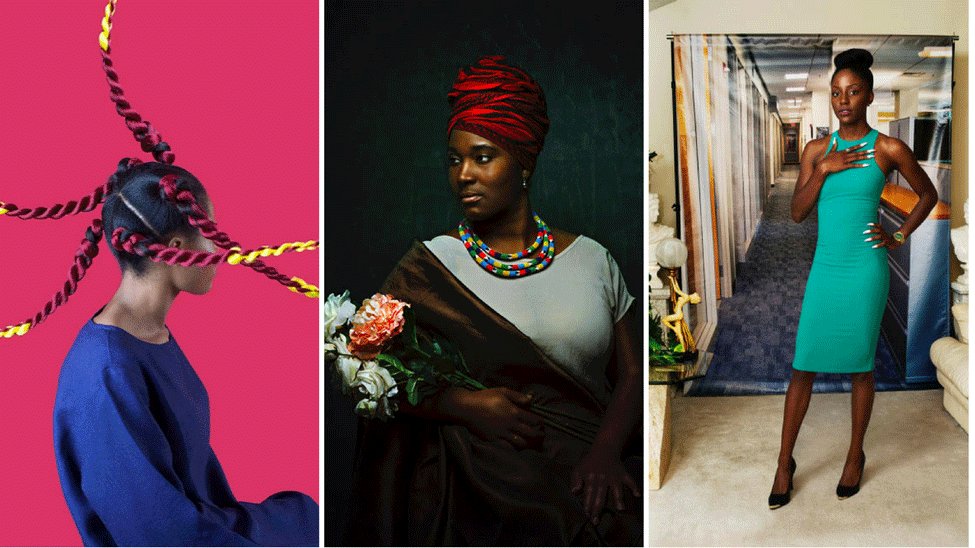
How do you see me? is a compelling show by three women who confront the way people of color are perceived in art, the work place, and through their physical appearance. How do you see me? features photographs by Alanna Airitam, Endia Beal and Medina Dugger. The show opens September 7and runs through October 27, 2018. Each artist’s work will be presented in a unique and non-traditional manner.
There will be an opening reception on Friday, September 7, from 5 to 8 p.m. Artists will be in attendance and are available for interviews.
About the Artists:
When Alanna Airitam (b. 1971, Queens, NY) was studying the history of art, she noticed the absence of black people in the history of Western art. This exclusion is familiar to many dark skinned people who are used to seeing themselves represented in paintings and films as domestic workers, slaves or barbarians. By inviting African Americans to pose in the style of classic Dutch portraiture, Airitam reclaims art history, shining a light on the racial disparity in her series, The Golden Age. Titling her images after places in Harlem -- Saint Sugar Hill, Saint Minton and Saint Lenox -- the artist pays homage to the Harlem Renaissance, which opened doors for many young African Americans working today. It is a powerful series that celebrates black identity while highlighting the racial divide that exists throughout art history.
Endia Beal (b. 1985, Winston-Salem, NC) focuses her camera on how African American women are perceived in the corporate world based on their physical appearance. As a young black woman in a mostly white dominated corporate job, Beal knew people talked behind her back about her hair, which did not conform to their definition of beauty. Now, as a professor at Winston Salem State University, Beal tackles the stereotypes that her students and other black women face when they do not fit the corporate mold. Am I What You’re Looking For? poses black women in front of a photographic backdrop of a typical office setting, wearing an outfit they find suitable for work. Through this work, Beal challenges the viewer to look at their own biases or sterotypes as they view the photographs.
Medina Dugger (b. 1983, Corpus Christi, TX) pays homage to Nigerian photographer J.D. 'Okhai Ojeikere, whose 40 year black and white photographic study of African women’s hairstyles set the standard for the celebration of black hair culture. African hair braiding methods date back thousands of years and Nigerian hair culture is a rich and often extensive process, which begins in childhood. The methods and variations have been influenced by social/cultural patterns, historical events and globalization. Hairdos range from being purely decorative to conveying deeper, more symbolic understandings, revealing social status, age and tribal/family traditions. In her Lagos studio, Dugger pays homage to historical and imagined hairstyles, honoring Ojeikere’s work through a contemporary lens in her series Chroma: An Ode to J.D. 'Okhai Ojeikere.



